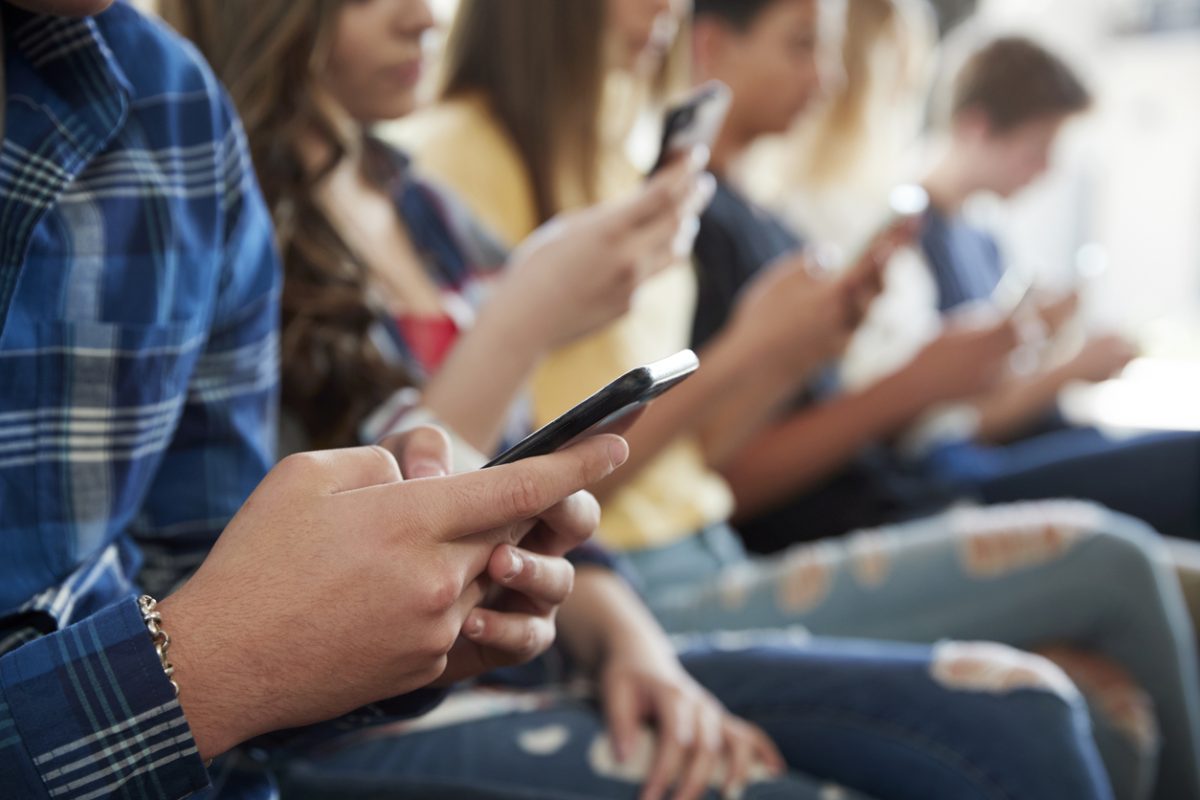
College students will be able to access their phones during breaks, but K-10 won’t be allowed their phones at all during school time. Photo: File.
Primary to Year 10 students will no longer be able to access their mobile phones or other personal communication devices at school from the start of Term 1.
The new Personal Use of Communication Devices in ACT Public Schools policy will restrict students’ use of such devices during the school day or during school-authorised events such as excursions and off-site camps.
“I know it’s a big change for students in our schools, and for our school staff and teachers, so we’ll transition that change through to make sure that everybody understands what the new requirements are through that first term,” Education Minister Yvette Berry said.
This was one of four options being considered by the ACT Government, with the policy eventually setting on one set of rules for primary and high schools and another for college (Year 11 and 12) students.
Smartwatches and wireless headphones that can connect to phone or internet networks also won’t be permitted during school hours for K-10.
“They’re all devices that can be used on their own or can be connected to a device that might be in a bag,” Ms Berry explained.
“Excluding them all for use during school hours is the best way forward to make sure that we encompass all of those types of communication devices.”
Schools will individually determine the best way to ensure students aren’t accessing their phones and decide on punishments if the new rules are broken.
Some already have phone lockers or locked pouches on site, while others may require devices to be stored in an individual’s bag, at the front office or with the classroom teacher.
Students will be encouraged to leave their phones at home; however, the ban only applies to devices during school hours given some children may need access to them when walking to and from school.
Exemptions to the phone ban, such as for people with mental health issues or neurodivergence, may be applied for and must be approved by the school principal or delegate.
“That’s where schools need to be listening to their school communities and working with students and parents about those exemptions might be,” Ms Berry said.
“[Other examples include] management of medical issues, which could include different kinds of medication requirements. It could include caring or family responsibilities, exemptions for use in a classroom setting … those are all open for discussion.”
College students will have to put their phones on silent and away during class, but they can use them at lunchtime or during breaks.
The change for older students was made given their expected higher maturity levels and to prepare them to self-manage their phone usage in the real world.
“We can manage what happens within the school gates to a degree, but what happens outside of the school gates, we hope we can have some influence on in informing them how to be good, decent digital citizens,” Ms Berry said.
The policy has been welcomed by representatives of parents, teachers and students in the community.
ACT P&C executive officer Veronica Elliott said while it was hard to tell if the bans will positively impact student behaviour and wellbeing, it’s a move in the right direction.
“There’s a number of things that we hear about mobile phones in classrooms – one is simply that students are not on task and not learning,” she said.
“The second thing is that other students find it very distracting as well.”
Schools have anticipated an increase in difficult student behaviour during the transition period. This would also be a “difficult challenge” for parents unable to contact their children at the drop of a hat.
“It might be an adjustment for some parents, but I encourage them to take advantage of the opportunities in the transition period [so that schools] can get the communication channels right and so that parents can be confident that those messages will be getting through,” Ms Berry said.
Contacting a school’s front office has been recommended for parents who need to get a message to their children.
Original Article published by Claire Fenwicke on Riotact.





